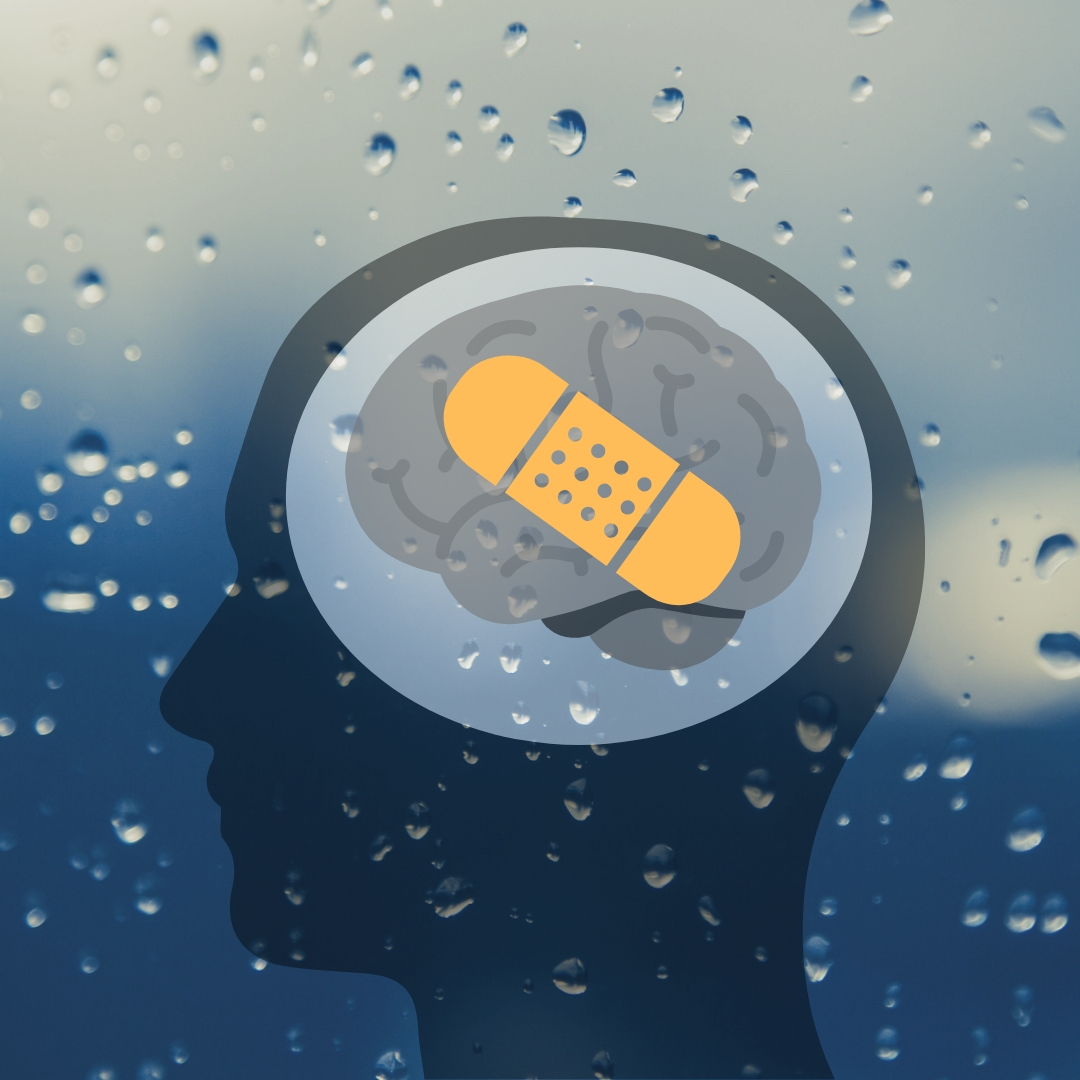Two months ago, you were pumping gas when your stomach started to rumble. You decided to run into the convenience store for a convenient meal. You were craving sushi and there was a tuna roll that looked good. Chopsticks in hand, you dove right in. But after eating only a few pieces, you instantly experienced the worst stomach ache imaginable and ran straight for the bathroom.
That food poisoning incident now lives inside your head and even the sight of sushi kind makes you want to vomit! Sure, never eating sushi again for the rest of your life might seem like a tragedy but imagine if this horrible experience that scarred you for life was a bad car crash instead. Let’s say you were driving down Woodward when suddenly, you got t-boned by another car and found yourself waking up in a hospital room surrounded by nurses and doctors examining your broken leg, herniated discs, and a mild traumatic brain injury (mTBI). You were disoriented and didn’t know where you were, and the pain from the injuries and the pain from remembering what happened hit you all at once. The ER did what they could to patch you up and discharged you with a long list of doctors to follow up with. Now you’re getting wheeled out to wait for the car to pull around to take you home when anxiety hits you. You’re about to get into a car after being injured in a car accident. You panic! What if it happens again?! You suck it up and get in, but the accident replays in your head the entire way home.
Then a few weeks pass. You’re on the road to physical recovery, but you’re frustrated. You couldn’t remember the capital of Canada on Jeopardy even though you took a trip to Toronto last year, you keep forgetting to take your medication and skipped a dose of a painkiller which then caused you agony for a few hours, and you’re cranky from the loss of sleep because you’re replaying the car accident in your dreams every night and jerking awake when the car t-bones you. On top of all that, your social life is suffering because you can’t build up the courage to leave the house and get into a car to meet your friends, not that you feel up to hanging out or that you can drive with a broken leg anyway. So, you are tired, in constant, severe pain, frustrated at your memory loss, and lonely.
What you’re experiencing here may be PTSD and depression possibly caused by a traumatic brain injury.
The American Psychological Association (APA) defines post traumatic stress disorder (PTSD) as, “an anxiety problem that develops in some people after extremely traumatic events, such as combat, crime, an accident or natural disaster.” An example of such a traumatic event can also be a car accident. Also, according to the APA, “people with depression may experience a lack of interest and pleasure in daily activities, significant weight loss or gain, insomnia or excessive sleeping, lack of energy, inability to concentrate, feelings of worthlessness or excessive guilt and recurrent thoughts of death or suicide.”
A new study published in the medical journal JAMA Psychiatry, found that, “among hospital patients, 21.2% of those with mild traumatic brain injuries experienced PTSD or depression up to six months after injury, compared with 12.1% of those with non-head injuries.” According to the Center For Disease Control and Prevention (CDC), a traumatic brain injury is, “a disruption in the normal function of the brain that can be caused by a bump, blow, or jolt to the head, or penetrating head injury.” The JAMA study, which was published January 30, 2019, measured 1,155 patients with mild traumatic brain injuries and 230 with non-head injuries from 11 hospitals with trauma centers across the United States, between 2014 and 2016. CNN analyzed the JAMA study and reported that, “researchers found that patients with mild traumatic brain injury (mTBI) were more likely to report PTSD or major depressive symptoms at three and six months after injury. At three months. The researchers also found that having a mental health problem before a traumatic brain injury was "an exceptionally strong risk factor" for having PTSD or major depressive disorder afterward.” The study also discovered that, “61.8% of the mild traumatic brain injuries were caused by motor vehicle collision!” “29.2% were the result of a fall or other unintentional injury, 6.1% were caused by violence or assault, and 3% were from an unspecified cause.”
Broken bones can heal but the brain may never recover from a traumatic injury. According to The Model Systems Knowledge Translation Center (MSKTC), recovering from a TBI varies for different people and, “improvements slow down substantially after two years but may still occur many years after injury.” Therefore, it’s important to take precautions and try to avoid head injuries. Since the JAMA Psychiatry study found that 61.8% of the mTBI’s in their study were caused by motor vehicle accidents, it’s been proven that car accidents are one of the most common ways to incur a head injury.
The symptoms of a traumatic brain injury may not manifest right away. Therefore, it’s important to understand TBIs and to know to seek treatment right away if a head injury occurs. March is Brain Injury Awareness Month and The Michigan Law Firm, PC, as a member of the Brain Injury Association of Michigan, encourages readers to join the #ChangeYourMind campaign to spread awareness on brain injuries.
Gross, gas station sushi can cause psychological trauma, but a car crash may lead to a traumatic brain injury which may then cause depression and PTSD. The Michigan Law Firm, PC handles the legal obstacles that arise out of car accident cases for TBI victims so that they can focus on the difficult journey to recovery. Call us at 844.4MI.FIRM for a free legal consultation.



